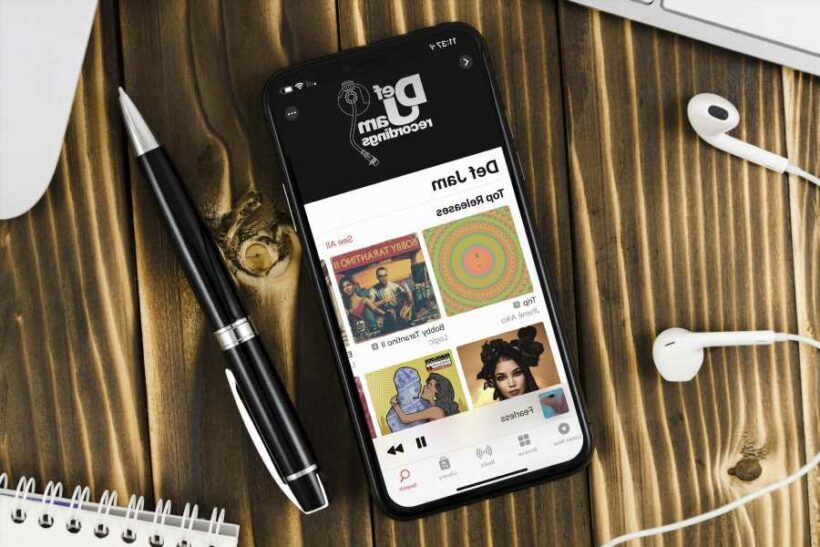Along with its high profile rollout of Spatial and Lossless Audio to users on Tuesday, leading up to the launch Apple Music also more quietly unveiled a feature last month giving record labels their own pages the same way artists get.
Apple Music listeners can find pages for major labels like Def Jam and Capitol as well as Indies like XL Recordings or Dead Oceans in the search bar, or a link to the a label page may show up at the bottom of some of their artists’ albums. Label pages are virtually the same as individual artist pages that were already on Apple Music and give a glimpse of a label’s biggest hit records, newest releases and a brief bio on a label’s history or influences. Apple built about 400 labels’ pages on the platform at launch and will be updating the pages.
Related Stories
Olivia Rodrigo's 'Sour' Leads Apple Music Pre-Add Chart
Apple Music Pays $0.01 Per Stream
Related Stories
40 Greatest One-Album Wonders
The United States of Weed
As it stands now, outside of the most intense listeners, music fans don’t hold brand loyalty and the demand toward one major major record label’s content the way they do to movie and tv studios like Disney and Netflix, or even to video game studios. That could in part be attributed to the more backseat nature labels play when listeners consume their content; moviegoers see production studio logos and short clips before a movie starts. Gamers see a developer’s watermark before their games boot up. Record labels may have gotten larger real estate to show their logos on CD covers and vinyl releases — but in the digital era, they’re relegated to the fine print, appearing only as a small copyright line at the bottom of an album page on streaming services. With a direct feed for fans to dig into a label’s catalog, fans can begin to see more directly which labels are behind their favorite projects.
Zane Lowe, the popular Apple Music 1 DJ and Apple Music’s global creative director, says fans growing up in the digital era still have label loyalty, pointing out boutique label imprints like Travis Scott’s Cactus Jack Records or Young Thug’s YSL, and adding that even beyond music, consumers care about what makes great art, not just what’s the biggest.
“No one’s saying they’re such a big fan of Paramount, they’re a fan of the movies they make or they’re not. What they’re really a fan of is Marvel because Marvel has zeroed in on what it’s really good at,” Lowe says. “The same can be applied to labels. When I was growing up I wasn’t looking for the album that had the Warner logo on it, but I did go around looking for the Rough Trade logo, for XL, and to be fair to the major label system, Atlantic, for a period of time. If you’re hyper-focused on delivering great quality never at the expense of your commercial bottom line, then you’re naturally going to inspire people to search for what you’re creating.”
Still, Lowe says, the digital era has seen labels perceived more as a distribution or financial unit rather than a music creator, and he hopes an initiative like this can help reflect labels’ place as musical hubs.
“We want to highlight labels that are really hyper-focused on building great quality. The labels we’re partnering with here are the ones where I want to search for their logo on the back of the record and would buy music unheard because I trust that,” Lowe says. “That to me is really the culture that we’re trying to represent from a label point of view here. In a way, this is an opportunity for us to reestablish the concept of a label as something more than just a bank. To look at the label system again as more than just a distribution model or an investment model, but actually as a place where music, art and culture is fostered in a really deliberate and very thoughtful way.”
Apple’s label pages are just one of the smaller add-ins to one of the music provider’s biggest updates since launch six years ago. Apple Music announced it’d bring lossless audio to the platform for free last month, a move that went against the standard of charging customers more for high definition streaming. Amazon Music announced quickly after the move that it would no longer charge for its own high fidelity offering. Spotify is expected to rollout its own high fidelity streaming tier this year, although it isn’t clear if they’ll charge for it or not.
Elsewhere, Apple Music launched Spatial Audio onto the platform, which Apple says will give a more multidimensional listening experience than standard stereo. It published a few playlists highlighting tracks that take advantage of Spatial Audio on Tuesday, and while there are thousands of songs featuring the tech now, Apple is working with artists and teams to onboard more music going forward.
Source: Read Full Article

